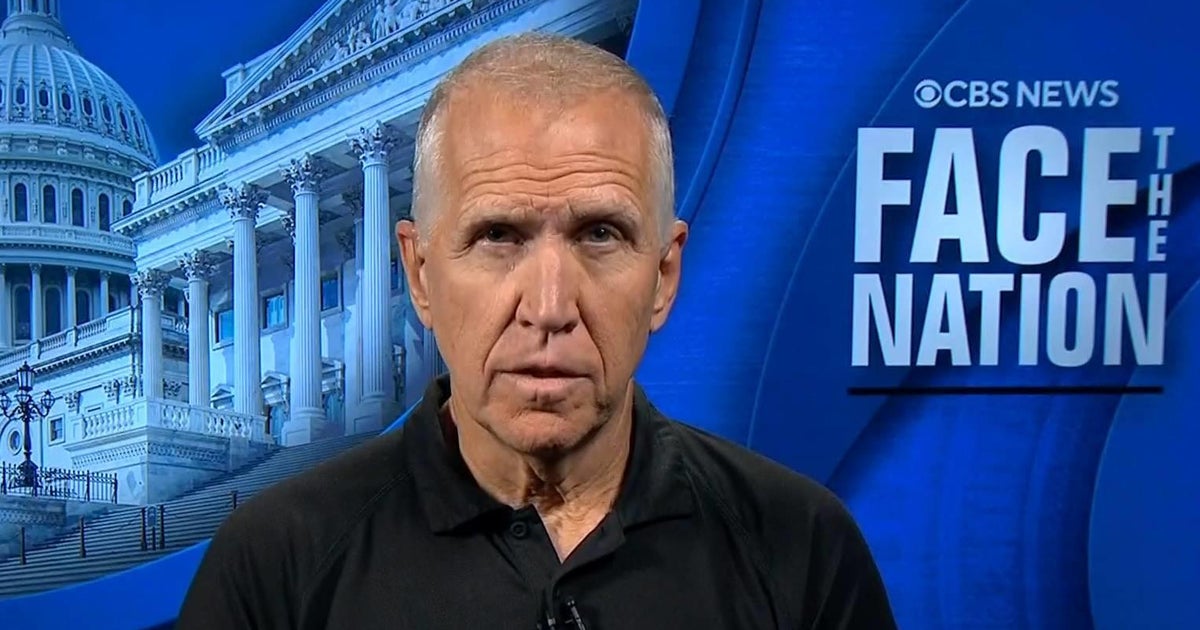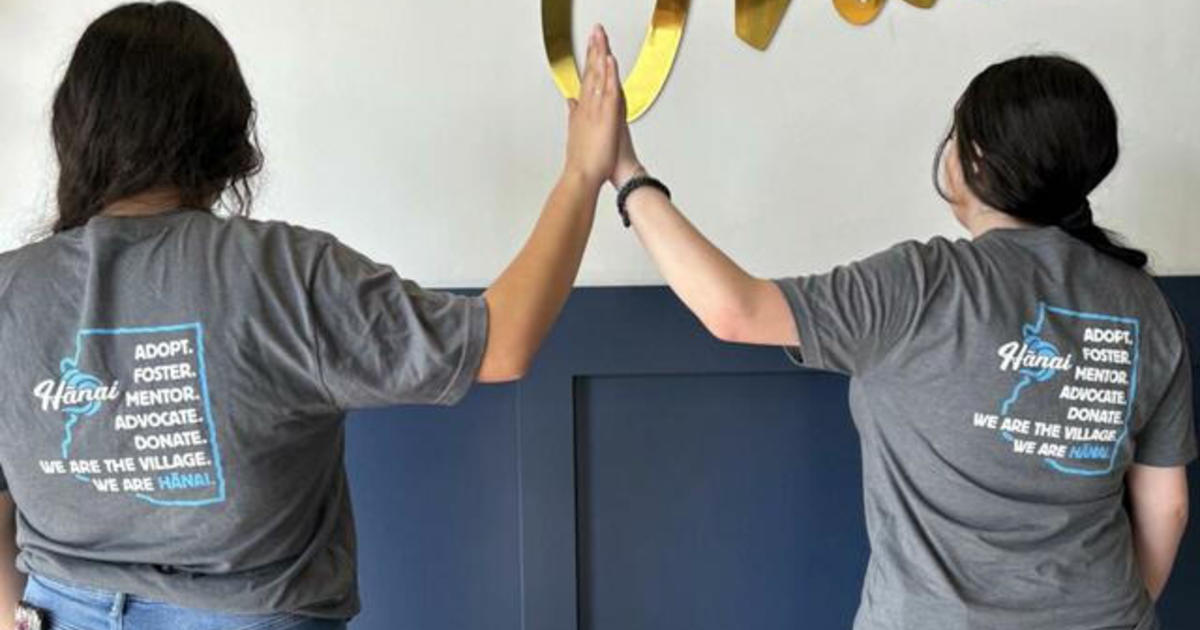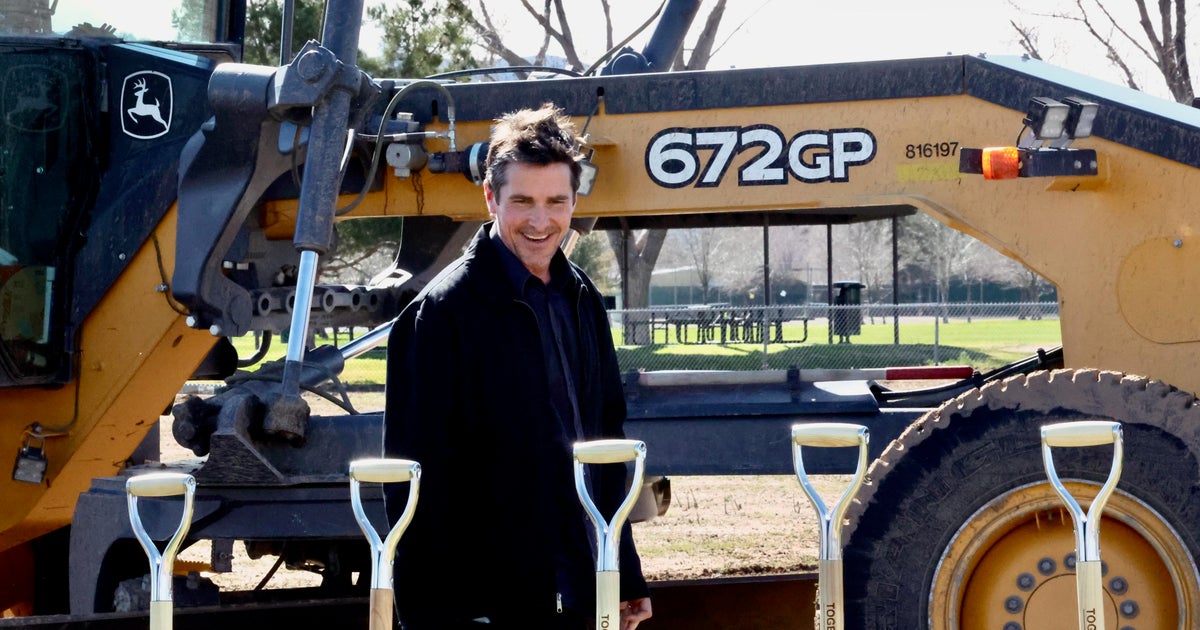CBS News
Foster children deprived of benefits: How a loophole affects the most vulnerable

Katrina White remembers just how determined her parents were to see her, and all her siblings, go to college. That never happened.
She lost her father when she was nine years older. Then, she lost her mother, too, in 2013. After living initially with an older sister, White spent most of the next seven years in group homes throughout Southern California.
She said it had never occurred to her that she would end up in foster care: “I didn’t even know what foster care was.”
Ian Marks, who grew up in New Orleans, was in foster care for eight years. Anthony Jackson (known as A.J.) spent his teenage years as a ward of the state of Minnesota. Justin Kasieta, who grew up in the Upper Peninsula of Michigan, was in foster care for about three years.
Each of these young people ended up in the care of the state for the worst possible reason: the death of one or both parents.
“When I was 15 years old, unfortunately, my father got diagnosed with an aggressive form of cancer,” said Kasieta.
Ian Marks’ story is particularly heartbreaking – his mom and dad were both in the military: “And my dad had killed my mother when I think I was around, like, 11 or 10 years old. I found her body in my house.”
But their shared loss doesn’t end there. After being placed in foster care, they discovered that government benefits that they should have been receiving after the deaths of their parents – Social Security, death or veterans benefits – had instead been claimed by the state.
Kasieta said, “While I was in foster care, I realized that I was supposed to be receiving these benefits. I inquired with my case worker, and they informed me that they would be taking the checks to reimburse themselves for my care and my siblings’ care.”
And that’s the issue here: in most states, foster kids receive their care for free. The only children who are singled out to pay for their own care are those receiving federal benefits, either because they are disabled, or have a deceased parent.
Amy Harfeld, the national policy director for the Children’s Advocacy Institute at the University of San Diego School of Law, said, “It’s not the state’s money to take; it’s the child’s money. It’s their property.”
Harfeld said children who have lost parents are often the most vulnerable. “We know that these young people have needs, and we know that when the benefits are applied for, there’s a good use for them,” she said. “But right now, they’re being used only to benefit the state.”
And according to Harfeld, the money isn’t being taken for foster care: “No, they’re taking the money really, in most cases, to put in general state accounts.”
Nationally, three-quarters of those in foster care entitled to benefits (according to the Social Security Administration, more than 25,000 children) are affected by this practice. But Harfeld says most kids have no idea, since agencies often apply for survivor and disability benefits without giving notice to the child, or his or her relatives.
“For sure, the secrecy is really the most insidious piece of this,” Harfeld said. “A lot of states might stand up and defend this practice, and to them I would say, if this is all above board, why are you doing it behind the kids’ backs? Why is it that you’re never telling them, or their attorneys, that you are doing this?”
The Social Security Administration estimates that $174 million in benefits a year are at stake. But Harfeld believes the number is actually higher. States are required by federal law to report back to the Agency how much of these benefits they take each year, but only about a dozen comply.
Ian Marks said, “My mother didn’t do all this work in the military just for this state to take this money and, as you hear, do nothing with it. Nothing, no changes, no benefits for me.”
Marks had it better than most; he was placed with one family. But often older children end up in group homes, or bounce from one place to another. Justin Kasieta lived in four different homes, and attended four different schools during high school.
And if it’s difficult to thrive in foster care, it’s even harder, they say, when you age out. “I aged out at 18 years old,” said Marks. “You don’t have access to a case worker anymore, and you are basically on your own. They may check and see if you have a job or if you have a place to stay. But if not, then you may just end up on the side of the street, which has actually happened to a lot of people.”
People like Katrina White. When she aged out of foster care at 21, in the fall of 2022, she ended up living in a tent alongside a busy San Diego freeway. “I would just wake up in the morning before the streetlights are off fully, and look around and be like, do I really want to be here?” she said.
White lived this way for more than seven months, while working part-time and taking college classes online.
She did much of her classwork in her tent. Asked if she was scared, she replied, “I was.”
Sarah Pauter, once a foster child herself, is project manager for a California non-profit that helps people like White (who have no place to live after foster care) to find housing. “I can’t think of a single person who would’ve persevered in her situation,” she said of White. “Every day for her was, where can I take a shower or use a bathroom, so I can manage my hygiene, and I can go to school and work and try to blend in?”
White was homeless and penniless, said Pauter, while welfare agencies had been collecting her survivor benefits for years. “I happened to just piece it together with Katrina, because I remembered in one of our earlier conversations, she mentioned both her parents had passed away,” Pauter said. “This happens behind the backs of young people.”
It hasn’t been easy to end the practice, said Illinois Congressman Danny Davis. “We think it’s very widespread, and that most states are doing it,” he said.
Since 2016 Davis has been pushing for Congress to prohibit states from taking federal benefits from foster children. “Let’s put it in some kind of reserve, a fund, so that as those individuals age out of the system, they may have a nest egg,” he said.
So far, Congressman Davis has been unable to get any version of the bill to a vote. “It has been challenging, I’ll put it that way,” he said.
But there is a growing recognition that children need more support when they leave foster care. Seven states (Connecticut, New Jersey, Maryland, Illinois, Nebraska, Arizona and Oregon) have now passed laws to help children keep their federal benefits – although a similar bill in California was vetoed by the Governor last year due to a shortfall in the state budget.
And there are signs that the federal agency that pays the benefits may do more.
Martin O’Malley, a former governor of Maryland, who became commissioner of the Social Security Administration late last year, said he does not believe it’s fair that children entitled to Social Security benefits have to pay for the foster care for which other kids don’t have to pay. “I don’t believe it’s the right policy outcome,” he said. “Clearly there’s a desire, a hope, that some of these dollars will be conserved for kids that are receiving Social Security benefits. But it doesn’t happen very often.”
Moriarty asked, “So you’re admitting it doesn’t happen. Isn’t that a violation of your own regulations, that this money is supposed to be conserved for these kids?”
“At this point, it is not,” O’Malley replied. “But the question is, should it be?”
But any future changes will come too late for A.J. and other children aging out of foster care now. A.J. estimates he missed out on $72,000 over six years. According to Kasieta, “Over $18,000 was taken.”
All four have still managed to beat the odds, and have gone on to college. Anthony Jackson is working on an art degree; Ian Marks is in law school; Justin Kasieta recently graduated from the University of Michigan; and Katrina White is studying social work, and now has stable housing.
Sarah Pauter, who was once there herself, said these are the lucky ones. She said she feels strongly about the issue of benefits, “because the outcomes of the young people who leave foster care are so bad. And so, until we have created a system that ensures that foster youth get everything that they need and that they make this transition to adulthood successfully, then it does not make sense for us to intercept money that could help them do that.”
For more info:
Story produced by Sari Aviv. Editors: Maria Barrow and George Pozderec.
CBS News
10/6: Face the Nation – CBS News

Watch CBS News
Be the first to know
Get browser notifications for breaking news, live events, and exclusive reporting.
CBS News
Sen. Thom Tillis says “the scope” of Helene damage in North Carolina “is more like Katrina”

As recovery missions and repairs continue in North Carolina more than a week after Hurricane Helene carved a path of devastation through the western part of the state, the state’s Republican Sen. Thom Tillis called for more resources to bolster the relief effort and likened the damage to Hurricane Katrina’s mark on Louisiana in 2005.
“This is unlike anything that we’ve seen in this state,” Tillis told CBS News’ Margaret Brennan on “Face the Nation with Margaret Brennan” on Sunday morning. “We need increased attention. We need to continue to increase the surge of federal resources.”
Hurricane Helene ripped through the Southeast U.S. after making landfall in Florida on Sept. 26 as a powerful Category 4 storm. Helene brought heavy rain and catastrophic flooding to communities across multiple states, including Georgia, South Carolina, Tennessee and Virginia, with North Carolina bearing the brunt of the destruction. Officials previously said hundreds of roads in western North Carolina were washed out and inaccessible after the storm, hampering rescue operations, and several highways were blocked by mudslides.
Tillis said Sunday that most roads in the region likely remained closed due to flooding and debris. Water, electricity and other essential services still have not been fully restored.
“The scope of this storm is more like Katrina,” he said. “It may look like a flood to the outside observer, but again, this is a landmass roughly the size of the state of Massachusetts, with damage distributed throughout. We have to get maximum resources on the ground immediately to finish rescue operations.”
Hurricane Katrina left more than 1,000 people dead after it slammed into Louisiana’s Gulf Coast in August 2005, flooding neighborhoods and destroying infrastructure in and around New Orleans as well as in parts of the surrounding region. It was the deadliest hurricane to hit the mainland U.S. in the last 50 years, and the costliest storm on record.
The death toll from Hurricane Helene is at least 229, CBS News has confirmed, with at least 116 of those deaths reported in North Carolina alone. Officials have said they expect the death toll to continue to rise as recovery efforts were ongoing, and a spokesperson for the police department in Asheville told CBS News Friday their officers were “actively working 75 cases of missing persons.”
On Saturday, the U.S. Department of Transportation released $100 million in emergency funds for North Carolina to rebuild the roads and bridges damaged by the hurricane.
“We are providing this initial round of funding so there’s no delay getting roads repaired and reopened, and re-establishing critical routes,” U.S. Transportation Secretary Pete Buttigieg said in a statement. “The Biden-Harris administration will be with North Carolina every step of the way, and today’s emergency funding to help get transportation networks back up and running safely will be followed by additional federal resources.”
President Biden previously announced that the federal government would cover “100%” of costs for debris removal and emergency protective measures in North Carolina for six months.
With North Carolina leaders working with a number of relief agencies to deal with the aftermath of the storm, Tillis urged federal officials to ramp up the resources being funneled into the state’s hardest-hit areas. The senator also addressed a surge in conspiracy theories and misinformation about the Biden Administration’s disaster response, which have been fueled by Republican political figures like former President Donald Trump.
Trump falsely claimed that Mr. Biden and Vice President Kamala Harris, his Democratic opponent in the November presidential election, were diverting funds from Federal Emergency Management Agency that would support the relief effort in North Carolina toward initiatives for immigrants. He also said baselessly that the administration and North Carolina Gov. Roy Cooper, a Democrat, were withholding funds because many communities that were hit hardest are predominantly Republican. Elon Musk has shared false claims about FEMA, too.
“Many of these observations are not even from people on the ground,” Tillis said of those claims. “I believe that we have to stay focused on rescue operations, recovery operations, clearing operations, and we don’t need any of these distractions on the ground. It’s at the expense of the hard-working first responders and people that are just trying to recover their lives.”
CBS News
Face the Nation: Tillis, Tyab, Russel

Watch CBS News
Be the first to know
Get browser notifications for breaking news, live events, and exclusive reporting.






